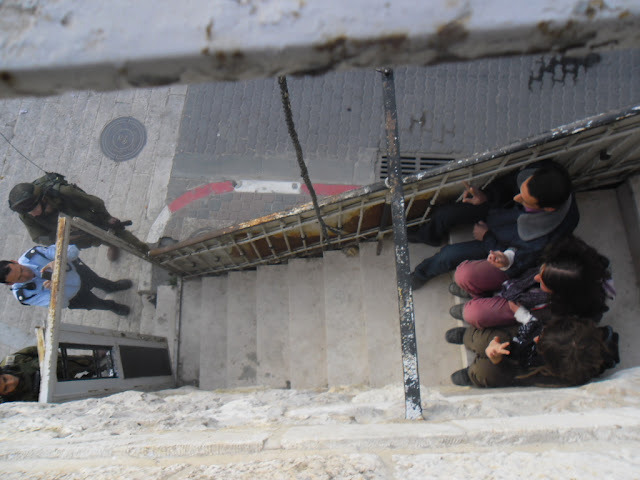Tag: Arrests
-
Israeli soldiers arrest 20 in a pre-dawn raid on Kufr Qaddoum
by Abir Kopty 5 April 2012 | Popular Struggle Coordination Committee During the raid, soldiers pillaged jewelry and caused extensive damage to houses. Residents are certain that arrests were made to quash regular protests in the village Massive numbers of Israeli soldiers staged an extensive pre-dawn raid on the West Bank village of Kufr Qaddoum…
-
Israeli Brutality: Violent arrests of Palestinians in Hebron and disappearance of Dutch volunteer
by Paige and Satu 1 April 2012 | International Solidarity Movement, West Bank A Dutch woman and several Palestinians were violently arrested today during an attempt to reclaim a Palestinian house at the entrance of the old city in occupied Al Khalil (Hebron). About 30 Palestinians and international ISM activists from Canada, Finland, United States…
-
Swedish peace activist beaten up by Israeli Occupation Forces
by Jonas Weber and Jeff 1 April 2012 | International Solidarity Movement, West Bank A Swedish peace activist at the Land Day demonstration in Qalandia, outside of Ramallah, was arrested. During the arrest he was kicked and beaten by the Israeli soldiers. “It happened so fast, I never understood what was going on before I…


